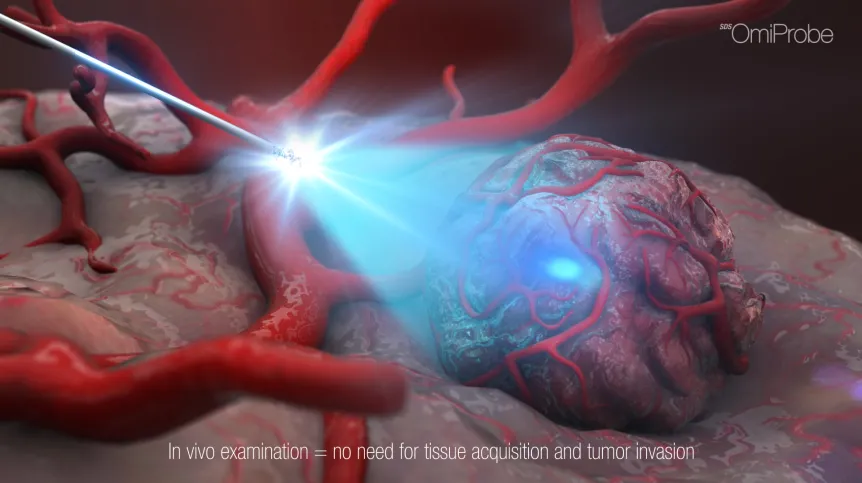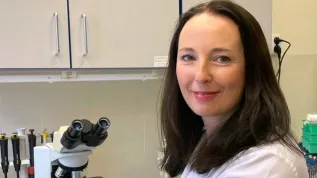
A micro-probe that will enable early diagnosis of breast cancer is being developed by Polish company SDS Optic. The company already has a working prototype, preparations for clinical trials have started.
According to the inventors of the device, the micro-probe for breast cancer diagnostics will take into particular account the measurement of the human epidermal growth factor receptor - HER2.
"It is a cancer marker that indicates a particular type of breast cancer. It is very important to determine the level of this receptor, because it allows to predict cancer aggressiveness, and additionally enables effective targeted therapy that improves the chances of successful treatment" - says Dr. Magdalena Staniszewska, originator of the micro probe and science director at SDS Optic, quoted in the release sent to PAP.
The principle of the probe's operation consists in inserting a thin needle in the vicinity of the tumour or into a lymph node, which will allow to almost immediately obtain information whether HER2 is positive or negative, and precisely determine its level. "Cancer diagnosis is very time-consuming today, it is also a complicated and painful examination. The use of micro probe allows to avoid pain and stress associated with biopsy and a long wait for results" - explains Marcin Staniszewski, the originator and CEO of SDS Optic.
The current version of the device is capable of detecting the concentrations of markers in the medically required ranges. With the probe it will no longer be necessary need to collect tissue samples, and doctor and patient will receive a precise, numerical test result in ten to twenty minutes.
"The use of our technology in the diagnosis of breast cancer will greatly reduce cancer mortality by up to 30%. Thanks to our micro probe, the diagnosis is objective, without the risk of misinterpretation of the result by humans, which is a risk in other methods. The diagnosis is also much faster, which improves the chances of successful treatment and reduces the costs of treatment" - says Dr. Magdalena Staniszewska.
The INNOventure fund invested PLN 3 million in SDS Optic. The investment will allow the company to calibrate its device for clinical trials. The company is now creating a plan for a biological laboratory that is necessary for further research. The funds will be used to purchase the highest quality equipment for the laboratory. The company plans to complete calibration and clinical trials in 2021. After this process is completed, the device can be made available to doctors and patients.
PAP - Science in Poland
ekr/ agt/ kap/
tr. RL













